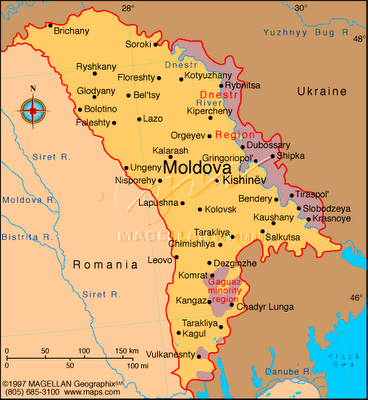Propositional Nationhood, Secession, and Multistate Nations

13 November 2024
Propositional nationhood is the liberal notion that nations are constituted through ideas rather than people. In contradistinction to the historic ethno-tribal definition of nationhood, propositional nationhood sees people as atomized individuals gathered together around a shared ideal or vision as opposed to consisting of interrelated families. The biblical and traditional model for nationhood is familial (Genesis 10:5), which means that nations are shaped organically through lineage as opposed to being artificially constructed by ideas.
The Enlightenment sought to challenge this traditional model, however. In the National Assembly after the French Revolution, the Jacobin Party was divided into the more radical Montagnards and the more moderate Girondins. Because of the bloodthirsty radicalism of the Montagnards, the Girondin legacy was more favorably embraced by nineteenth-century liberals. The Girondins were also known as Brissotins, because the movement was ideologically driven by the Enlightenment philosopher Jacques Pierre Brissot (1754—1793). At the time of the revolution, Brissot emerged as one of the leading proponents of propositional nationhood. In 1788, Brissot founded an abolitionist group called the Société des amis des Noirs ("Society of the Friends of Blacks") which were active in publishing literature against slavery and ethno-nationalism. The Australian National University scholar Lalevee notes in this regard that Brissot openly “connected national honor to the values of political liberty, popular sovereignty and cosmopolitan peace.”
Brissot and the Girondins openly advocated the cosmopolitan ideal of a civic nation, separating statehood from the ethnos upon which it had traditionally been based. This laid the foundation for the post-revolutionary view of the social order as imperial and universal, rather than tribal and local. The modern error of propositional nationhood therefore is firmly rooted in the liberalism of the Enlightenment. Ironically, in a recent discussion on X, where I quoted the Protestant Reformer Lambert Daneau on the right of secession, an argument was presented that holding to the right of secession necessitates a belief in propositional nationhood. This is based on the idea that secession implies the idea of the creation of a new nation-state as political ideal. This is of course false, as the sheer fact that a part of a nation secedes to form a new state simply does not entail forming a new nation based around an idea. The most obvious practical example of this happening is North and South Korea, but there are several other contemporary examples such as Albania and Kosovo—both Albanian states, Romania and Moldova—both Romanian states, the Republic of Ireland and Northern Ireland—both Irish states, Germany and Austria—both German states, Argentina and Uruguay—both Spanish states, America and Canada—both Anglo states, as well as China and Taiwan—both Han Chinese states. Historically, when my own people, the Boers in Southern Africa moved inland they also founded several micro-republics. During the nineteenth century there were nine Boer Republics in total. Despite this the Boers of all these Republics still understood themselves to be one people. In the case of the Lydenburg Republic, the Boers there even seceded from a larger Boer Republic (the Transvaal) because of the prevalent theological liberalism in the latter’s state church. The New England Puritans (who still considered themselves English as the name New England suggests) also established several distinct colonies: Massachusetts Bay, Saybrook, Connecticut, New Haven, and Rhode Island.
There are therefore ample examples of where a people's creation of multiple political entities or states—either through settlement or secession—does not equate to the creation of a new nation based on an ideal.
Moreover, the aformentioned examples of multistate nations are still exceptions to the rule. Normally, when secession does take place, it actually takes place along ethnic lines, and most secession movements in the world today do in fact advocate for this type of secession. Even in the Biblical example where the tribes of Judah and Benjamin seceded from the northern kingdom of Israel, it was also done along tribal lines. Therefore, the claim that advocating the right of secession necessarily implies propositional nationhood is, quite simply, a non sequitur.